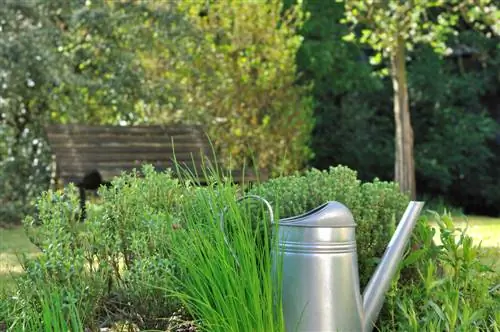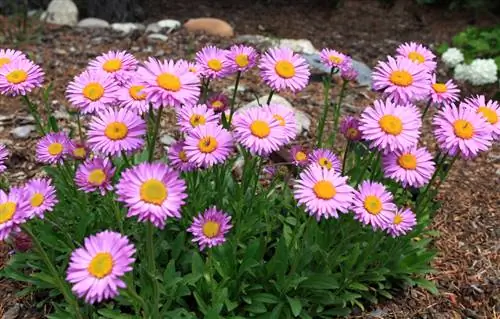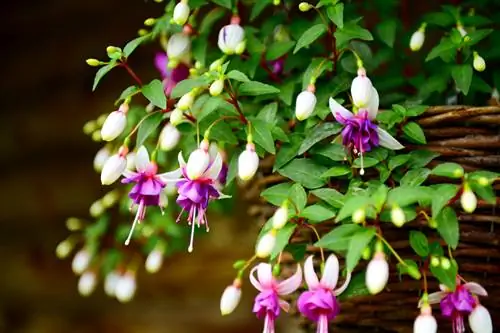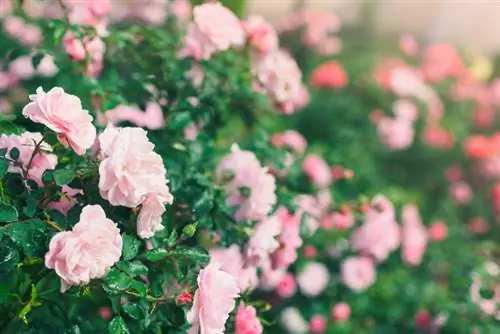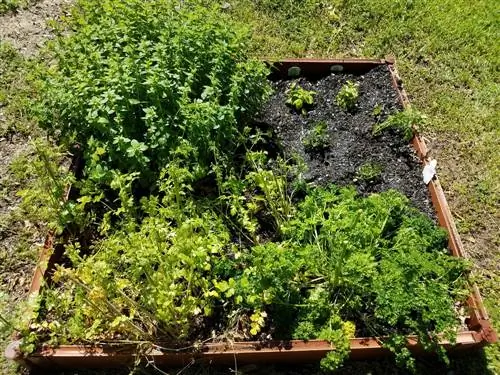- Author admin leonars@hobbygardeners.com.
- Public 2023-12-16 16:46.
- Last modified 2025-01-23 11:21.
In order for herbs to develop their full aroma and grow he althily, they need the right care.
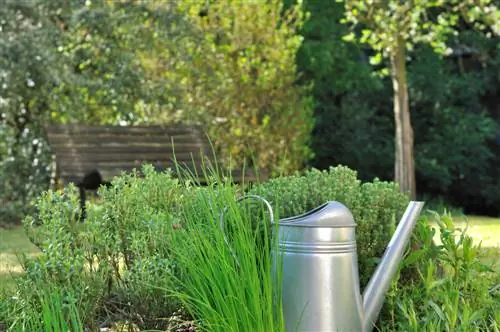
How do I properly care for my herb garden?
To optimally care for a herb garden, you should place the herbs in a sunny location, water sparingly, use compost or organic fertilizer in the spring, take measures against slugs, pay attention to overwintering, and harvest and cut the herbs regularly.
Which location do herbs prefer?
The vast majority of herbs prefer sunny locations. They only develop their full aroma when there is plenty of light and direct sunlight. All Mediterranean species are particularly demanding in this regard, as their hunger for sun can often be recognized by their silver-gray leaves.
How should you water herbs correctly?
In our latitudes, the natural rainfall for planted herbs is usually completely sufficient to provide water - but this can be too much for the Mediterranean herbs. You basically only need to water during long dry periods. However, with moisture-loving species, the soil should never dry out completely.
Do you have to fertilize herbs?
All herbs are happy about a handful of compost in the spring (apply one to two centimeters high in the bed). Give annual species and the more demanding perennials a slightly larger portion and fertilize them again in early summer. Organic fertilizers such as horn shavings (€32.00 on Amazon) and algae preparations are also very suitable.
What to do against snails in the garden?
Snails are a real pest in the herb garden. The best way to keep this under control is through thorough prevention: after heavy rainfall, rake up the surface of the ground soon so that the soil can dry out more quickly and thus become unattractive to the animals. Place small boards or flat stones in the beds under which the snails like to retreat. You can easily collect them there in large quantities in the morning and evening hours.
How can herbs be propagated well?
For all one- to two-year-old species, sowing is the only possible method of propagation. Perennial (i.e. perennial) herbs, on the other hand, can also be propagated vegetatively, for example by division, cuttings or planters.
Overwintering herbs properly
Most herbs can stay outside in winter and only require light winter protection in very harsh locations.
Cutting and harvesting herbs correctly
The best care and rejuvenation of herbs is the regular harvesting of shoots and shoot tips, depending on the plant species. In woody sub-shrubs, trimming the shoots stimulates branching and therefore promotes beautiful, bushy growth. That's why you should always prune your herbs vigorously, even in the spring before new growth. Herbaceous species whose shoots die off in winter anyway (such as oregano or peppermint), on the other hand, should be cut off close to the ground in autumn or spring.
Tip
Herbs are best harvested in the late morning and collect the clippings in airy baskets. In the midday heat, essential oils evaporate and the aroma is lost.

